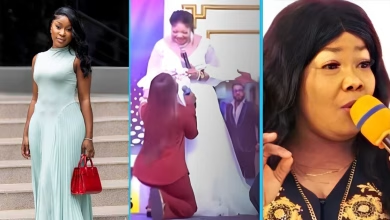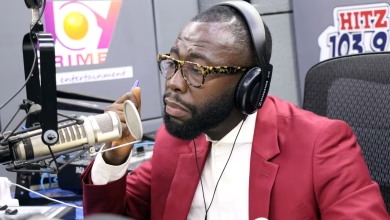D-Cryme: My Music Worth More Than $1M to Political Parties

- D-Cryme rejects million-dollar offers for political songs
- Prioritizes artistic integrity and independence
- Contrasts with other Ghanaian musicians' political collaborations
- Emphasizes importance of artistic integrity and values over financial gain
Ghanaian musician D-Cryme has made a bold statement, affirming his commitment to maintaining artistic integrity and independence. In a recent interview, he declared that he would decline any offer to compose a song for a political party, regardless of the financial incentive.
D-Cryme confidently asserted that his worth extends far beyond any monetary value, stating, “I’m worth more than that.” He described himself as a “quadruple, zillion-dollar artist,” emphasizing his unwavering dedication to his craft and the people of Ghana.
The musician’s stance is rooted in his desire to maintain his artistic freedom and avoid any potential compromise. By rejecting lucrative deals from political parties, D-Cryme ensures that his music remains a genuine reflection of his creativity and values.
D-Cryme’s resolve is particularly notable in the Ghanaian music industry, where some artists have accepted deals with political parties during campaign seasons. His commitment to staying above the fray sets him apart from his peers.
In contrast, other prominent Ghanaian musicians have chosen to collaborate with political parties. Legendary highlife artist Daddy Lumba, for instance, composed campaign songs for the New Patriotic Party (NPP) in the 2008 elections.
Daddy Lumba’s iconic song, “Nana Is A Winner,” became an anthem during the campaign, solidifying his association with the party. This partnership highlights the complex dynamics between artistry, politics, and financial gain.
Gospel artist Nacee is another notable example of an artist engaging in political campaigns. His 2016 song, “Onaapo,” became a rallying cry for the National Democratic Congress (NDC) during the elections.
Nacee’s song transcended political circles, resonating with many Ghanaians due to its infectious rhythm and message of victory. This illustrates the significant impact music can have on shaping public opinion and political discourse.
D-Cryme’s decision to maintain his independence underscores the importance of artistic integrity in the music industry. By prioritizing his values over financial gain, he sets a powerful precedent for fellow artists.
D-Cryme’s stance serves as a testament to the enduring power of music as a force for social commentary, inspiration, and unity – unfettered by political affiliations or financial interests.






